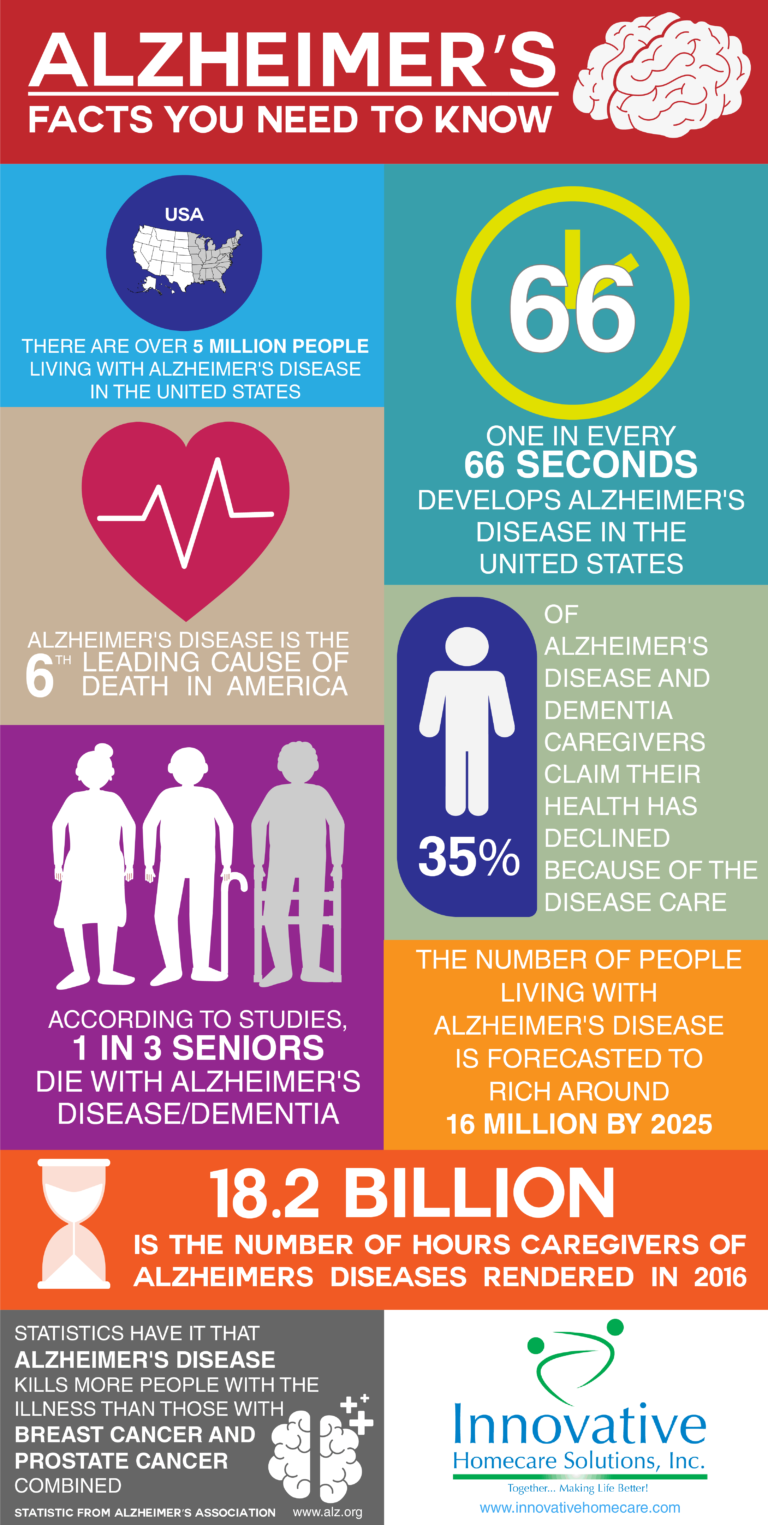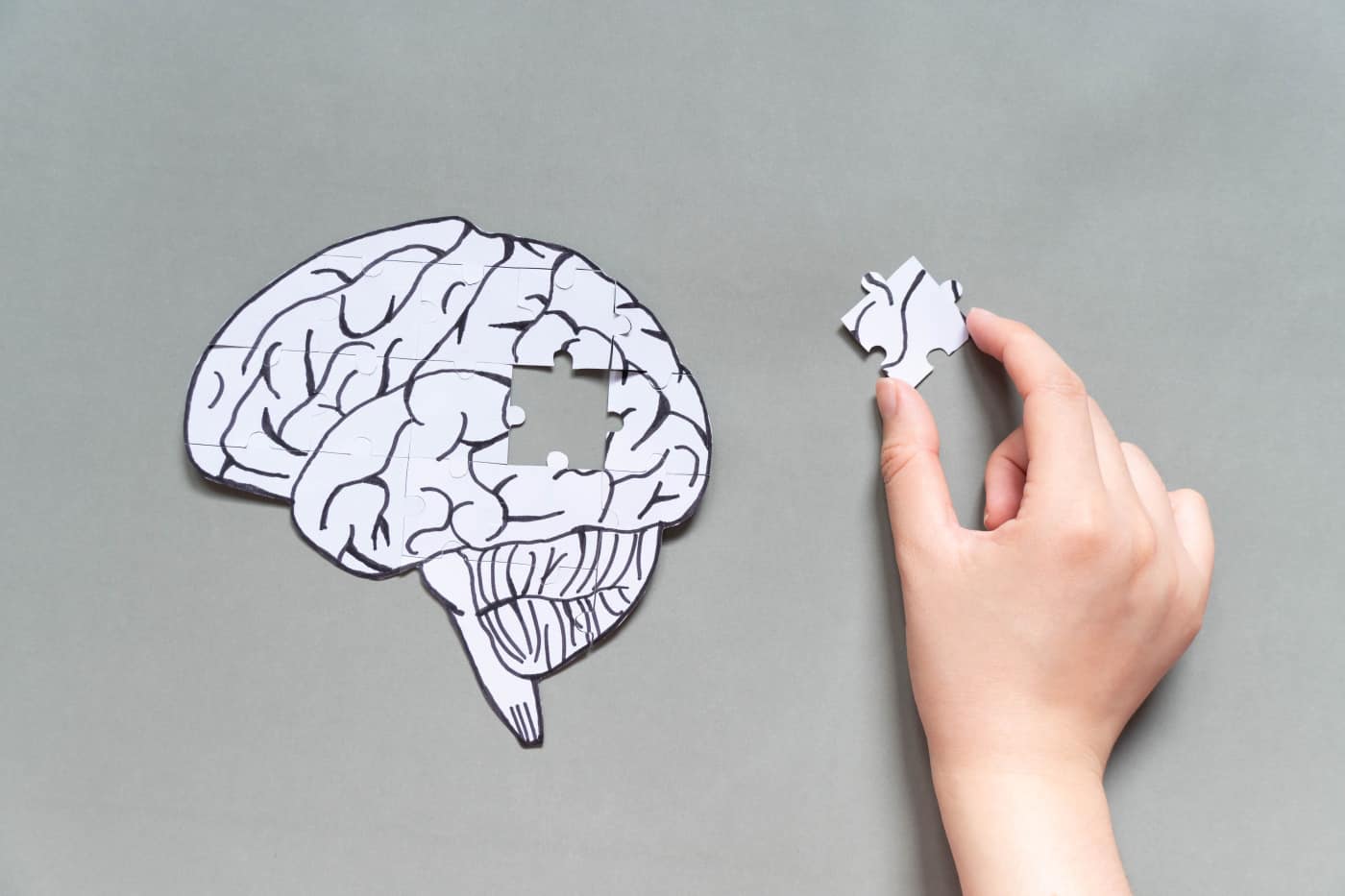Alzheimer’s is a type of dementia and is also a progressive and fatal brain disease, which will rob a patient of cognitive skills and eventually bodily functions. Often the patient doesn’t succumb to the disease itself but from complications arising from it. Here are the top 6 most common early signs of Alzheimer’s Disease.
Recognizing the disease early can help a patient and family prepare to deal with it. But keep in mind there is no cure (although there are treatments that can possibly slow the progression or improve quality of life).
1. Forgetting Recent Information
Alzheimer’s may present itself early from missed doctor’s appointments or forgetting to get together with a friend you made a coffee date with a couple of days prior. Memory loss (a cognitive function) is the biggest marker of Alzheimer’s, and it will progressively get worse.
The Alzheimer’s Association in the U.S. explains that many patients rely on notes or electronic devices early on to remember important dates. They may ask you for the same information repeatedly. The association said some older people without Alzheimer’s sometimes forget details like names and appointment times, but it comes back to them.

2. Trouble Following Instructions
WebMD explains that a person who is used to cooking may suddenly have trouble with a recipe. They’re already familiar with when Alzheimer’s starts setting in. Tasks that require problem-solving and details may become especially difficult for these individuals, it adds.
Another place you may notice an impact is in a person’s financials. They may have trouble keeping track of their bills, which will be more obvious if they have a history of paying bills on time.

3. Behavioral/Personality Changes
Harvard Medical School explains that Alzheimer’s can change the way a person acts. It can cause them to do some unusual things (compared to what they did in the past). While it’s normal for some people to change their social habits as they age, “changes in a person’s basic disposition or temperament aren’t normal and may be signs of dementia,” notes the school. Depression is common among Alzheimer’s patients, it adds.
As far as unusual behavior is concerned, the patient might be more prone to wandering (and perhaps getting lost). Wearing clothes that don’t suit them or their environment, or engaging in “unsafe” behaviors, it adds. A well-mannered person may also suddenly start using foul language as the disease sets in.
4. Trouble Communicating
WebMD notes that “vocabulary becomes hard” for patients experiencing Alzheimer’s. They may not know the right word to use to describe something. They may call objects but the wrong name, it adds.
Having a normal conversation with someone can become a challenge. So, some patients may just start avoiding chatting with people, notes WebMD. The patient may also not respond because they don’t know what to say, or repeat themselves, it adds.
5. Hiding and Hoarding Items
This can be traced back to the behavioral changes, but we’ll get into a bit more detail about it here. The Alzheimer’s Society (UK) explains that a person developing Alzheimer’s may stash items away. Which “may be an attempt by the person to remain in control of their situation,” notes the source.
The patient may also be experiencing delusions that people are trying to steal their belongings, leading to hiding them. The patient may then not remember where they put an important item. Which is frustrating for both the patient and caregivers that have to help them track it down, it adds.
6. Visual Difficulties
The U.S. Alzheimer’s Association notes a patient may have “trouble understanding visual images and spatial relationships,” meaning they may not be able to judge distance as well. Which is a bad thing when it comes to driving. (On that note, people with dementia may lose their way on a route they’ve driven many times.)
Other visual impacts could be trouble reading, and determining colors and contrast, which could also lead to trouble behind the wheel, adds the source. This type of visual difficulty is not associated with normal aging unless cataracts are involved, it notes.

